10 Crucial Tips On Doberman Pinscher Training
Doberman Pinschers are intelligent, loyal, and energetic dogs, making them great companions but also requiring effective training to ensure they are well-behaved.
Here are 10 essential tips for training your Doberman Pinscher, helping you build a strong, positive relationship with your furry friend.
10 Doberman Pinscher Training Tips
1. Start Early
The best time to start training your Doberman is when they are a puppy. Begin basic training as soon as you bring your puppy home.
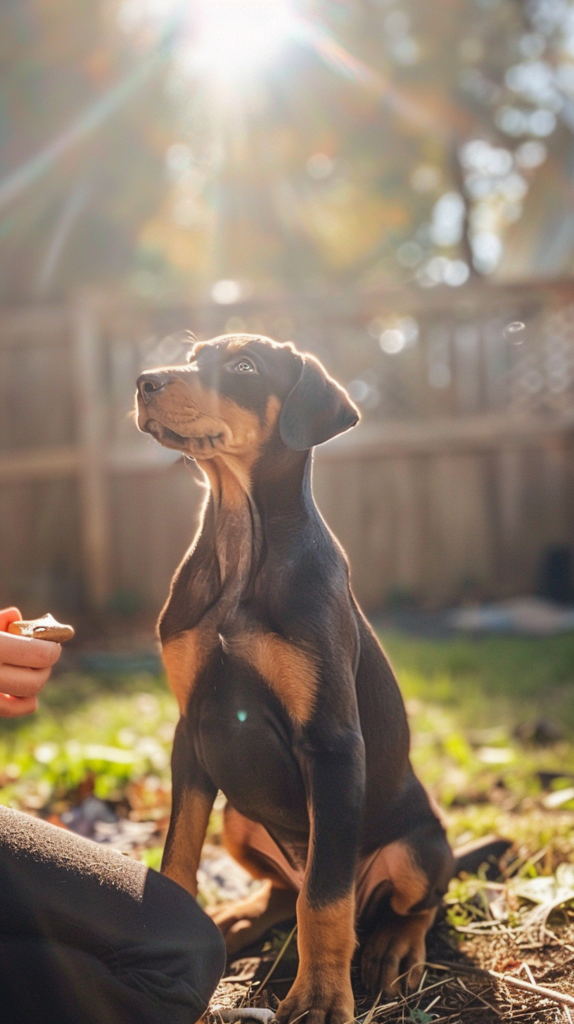
Early training helps establish good habits and socialization skills, making it easier to manage your dog as they grow.
2. Use Positive Reinforcement
Dobermans respond exceptionally well to positive reinforcement. Reward your dog with treats, praise, and affection when they perform desired behaviors.
🍲 50 Printable Dog Food Recipes Your Pup Will Love
Skip the fillers and preservatives. Make healthy, homemade meals your dog will actually eat — using everyday ingredients you already trust. Vet-friendly, budget-friendly, and super easy to follow. 🐾
Perfect for picky eaters, senior dogs, and pups with sensitive stomachs. Make mealtime simple and nutritious again.
Get the Recipes Now 🐶This method encourages them to repeat those behaviors and builds a trusting relationship between you and your dog.
3. Be Consistent
Consistency is key in dog training. Ensure that everyone in your household uses the same commands and rules.
Inconsistency can confuse your Doberman and hinder their learning process.

4. Socialize Your Doberman
Socialization is crucial for Dobermans to become well-adjusted adults. Expose your dog to different people, environments, and other animals from an early age.
This helps them become confident and reduces the likelihood of fear or aggression.
5. Establish a Routine
Dobermans thrive on routine. Set a regular schedule for feeding, exercise, and training sessions. A consistent routine helps your dog understand what is expected of them and reduces anxiety.
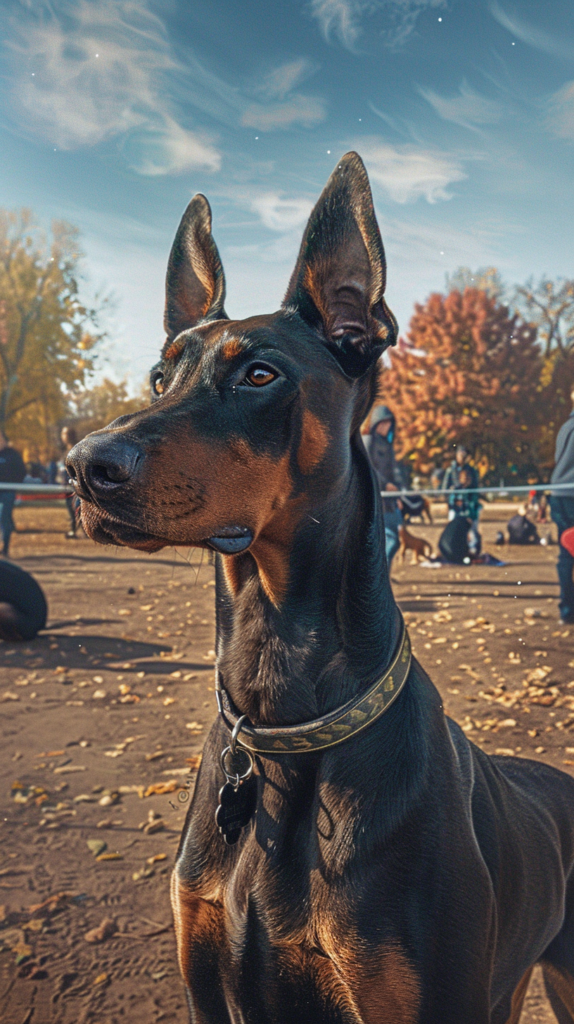
6. Teach Basic Commands First
Start with basic commands like sit, stay, come, and down. These commands form the foundation for more advanced training.
Use clear, concise commands and reward your Doberman for obeying them.
7. Exercise Your Doberman Regularly
Dobermans are high-energy dogs that require plenty of exercise. Ensure your dog gets regular physical activity to burn off excess energy.
A tired dog is more likely to focus during training sessions and less likely to develop destructive behaviors.
8. Be Patient
Training a Doberman requires patience and persistence. Dogs learn at different paces, and it’s important not to rush the process.
Stay calm and patient, and celebrate small victories along the way.
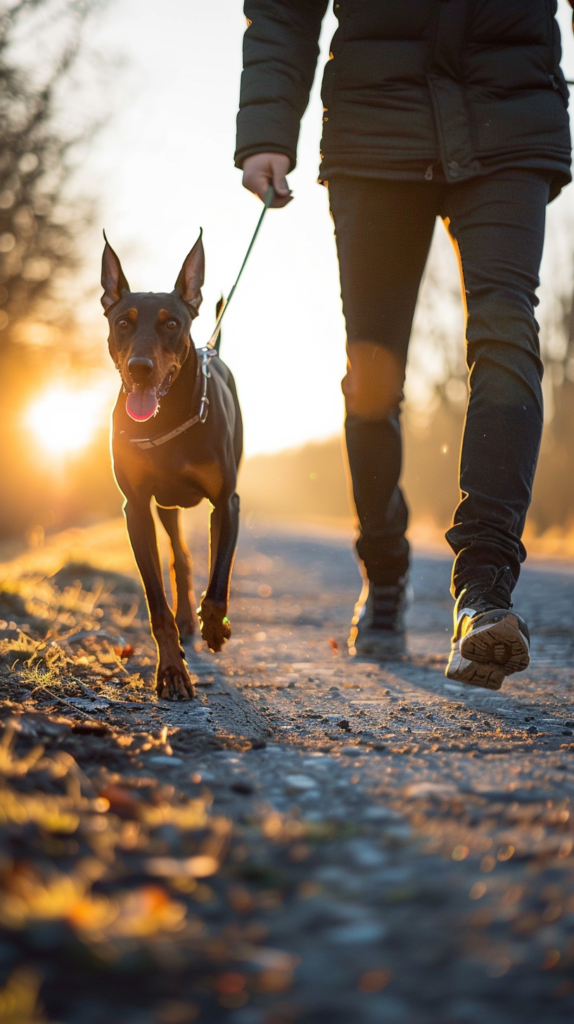
9. Use Crate Training
Crate training can be highly effective for Dobermans. A crate provides a safe and secure space for your dog and can aid in house training.
Ensure the crate is comfortable and introduce it gradually to create a positive association.
10. Seek Professional Help If Needed
If you’re struggling with training your Doberman, don’t hesitate to seek professional help. Professional trainers can provide personalized guidance and address specific issues.
Sometimes, an expert’s touch is needed to ensure successful training.
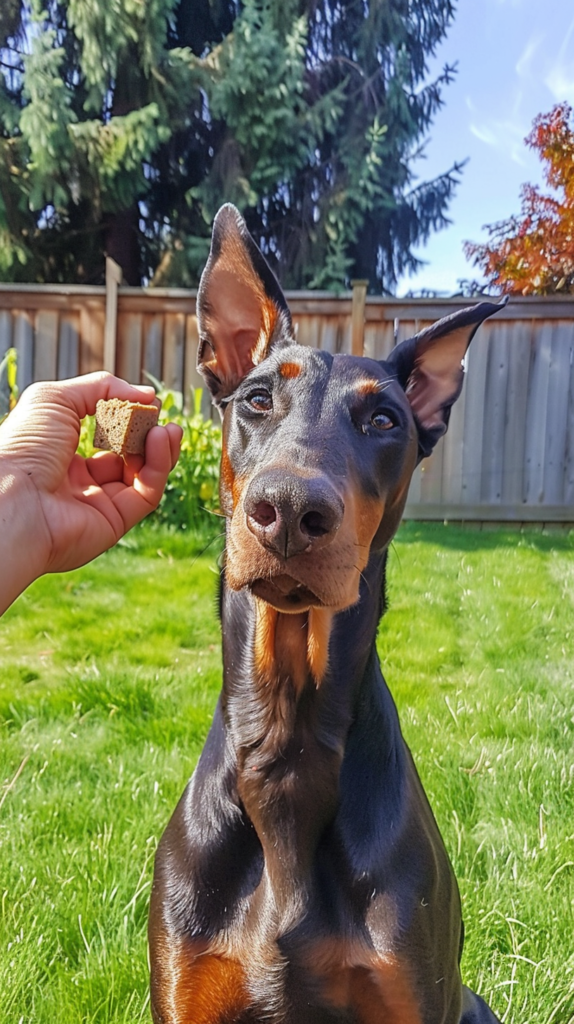
FAQ
1. How early should I start training my Doberman Pinscher?
Start training as soon as you bring your puppy home, typically around 8 weeks old. Early training helps establish good habits and socialization skills.
2. What is the best method to train a Doberman?
Positive reinforcement is the most effective method. Reward your dog with treats, praise, and affection for desired behaviors to encourage repetition.
3. How much exercise does a Doberman Pinscher need?
Dobermans are high-energy dogs and require at least 1-2 hours of exercise daily. This can include walks, playtime, and mental stimulation activities.
4. Why is socialization important for Dobermans?
Socialization helps your Doberman become confident and well-adjusted. Expose them to different people, environments, and other animals to reduce fear and aggression.
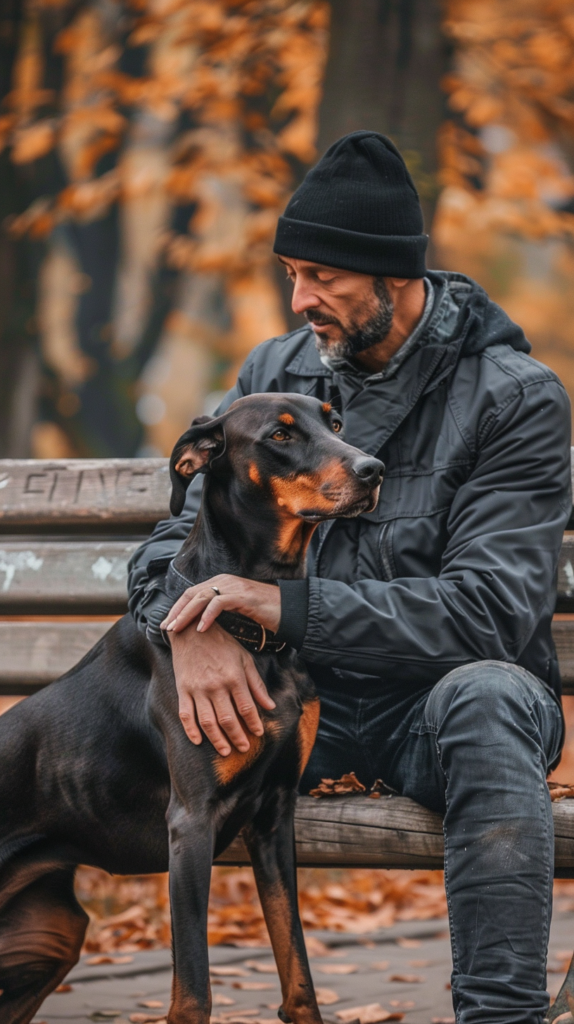
5. Can I train my Doberman on my own, or do I need a professional trainer?
While many owners successfully train their Dobermans on their own, professional trainers can provide personalized guidance and address specific issues. Seek professional help if you encounter difficulties.
6. How do I ensure consistency in training?
Ensure everyone in your household uses the same commands and rules. Consistency helps avoid confusion and reinforces learning.
7. What are some basic commands to start with?
Begin with basic commands like sit, stay, come, and down. These form the foundation for more advanced training.
8. Is crate training beneficial for Dobermans?
Yes, crate training provides a safe space for your dog and aids in house training. Introduce the crate gradually and make it comfortable for your Doberman.
9. How can I keep my Doberman engaged during training?
Keep training sessions short and fun, use high-value treats, and incorporate playtime to maintain your dog’s interest and focus.
10. What should I do if my Doberman isn’t responding to training?
Be patient and consistent. If your Doberman still isn’t responding, consider seeking help from a professional trainer to address specific challenges.
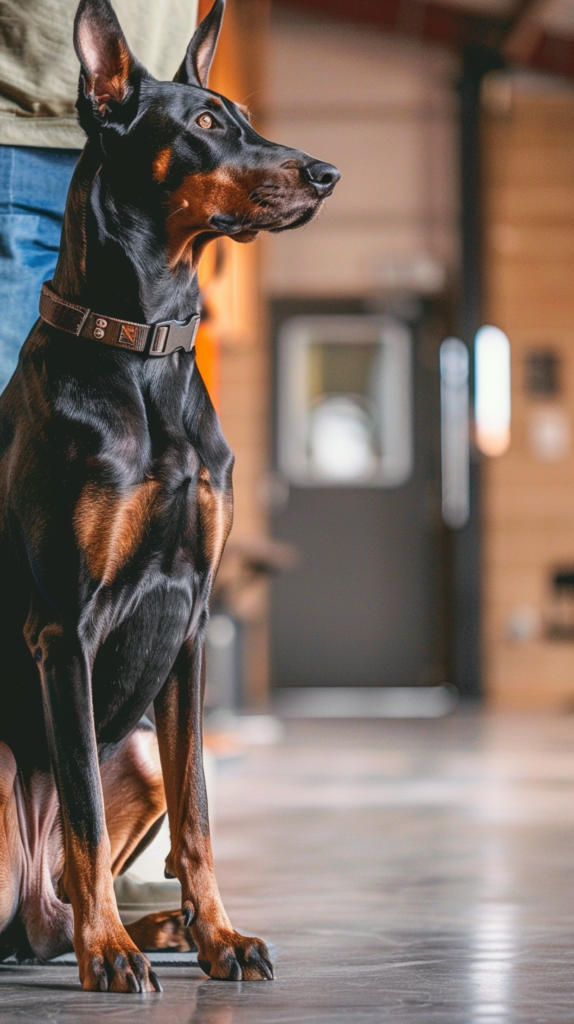
Final Thoughts
Training a Doberman Pinscher can be a highly rewarding experience, fostering a strong bond between you and your dog.
By starting early, using positive reinforcement, and maintaining consistency, you can help your Doberman develop into a well-behaved and loyal companion. Remember to be patient, as every dog learns at their own pace. Don’t hesitate to seek professional guidance if you encounter challenges.
With the right approach, your Doberman will thrive and become a wonderful addition to your family. Enjoy the journey and celebrate the progress, no matter how small!
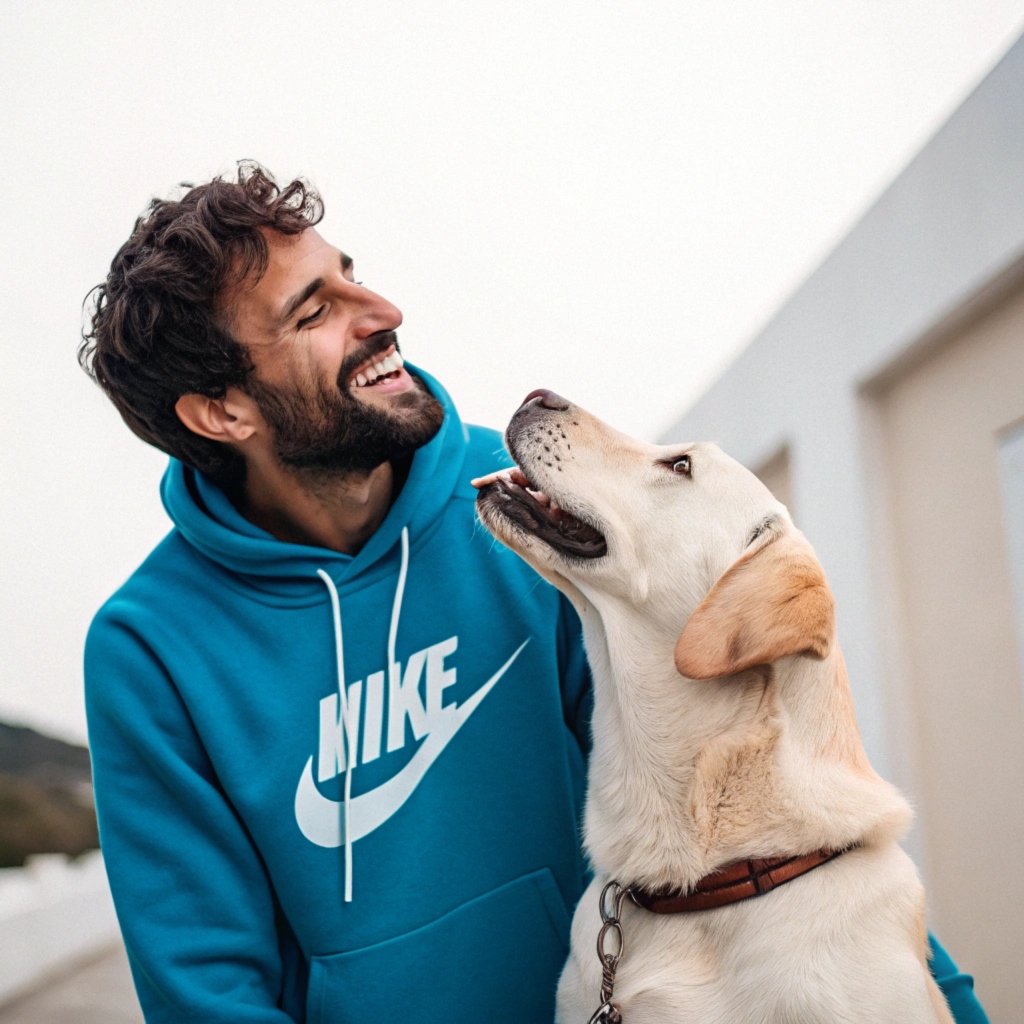
I’ve spent 10+ years in dog training, digging into what makes dogs (and their humans) tick. At Smart Dog Learning, I share my no-nonsense, fun approach to training so you can enjoy life with a well-behaved, happy pup—no boring lectures, just practical results 😉





